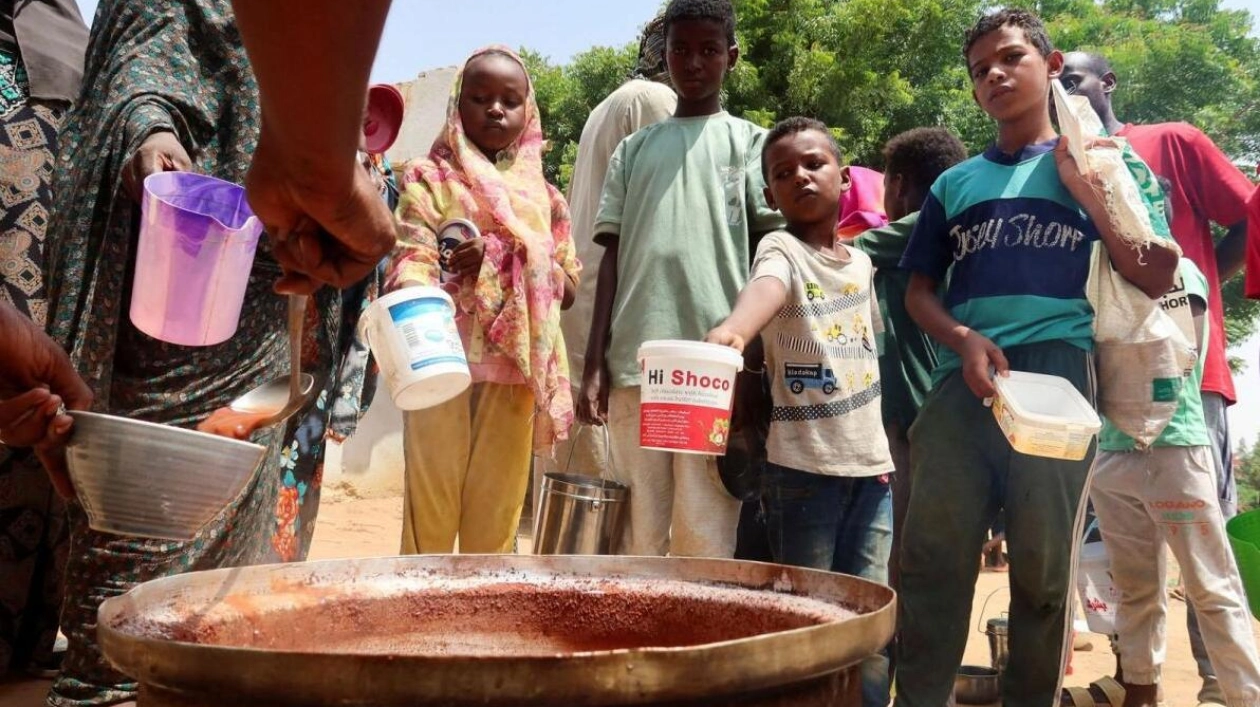Photo: Reuters file
Sudan, ravaged by war, is on the brink of famine, a crisis largely overlooked by global leaders, according to the Norwegian Refugee Council (NRC) chief Jan Egeland. In an interview with AFP from Chad, Egeland stated, "We are witnessing the most severe humanitarian crisis on the planet in Sudan, with the highest levels of hunger and displacement, yet the world remains indifferent." This assessment follows his recent visit to Sudan. Since April 2023, Sudan has been embroiled in a conflict between its regular army and the paramilitary Rapid Support Forces (RSF), resulting in tens of thousands of deaths and displacing over 11 million people. The United Nations reports that nearly 26 million people within Sudan are experiencing acute hunger.
Egeland recounted meeting women who were barely surviving on a daily meal of boiled leaves. The NRC, one of the few organizations still operating in Sudan, estimates that about 1.5 million people are on the verge of famine. Egeland emphasized that the ongoing violence is destroying communities faster than aid can be provided, stating, "Our current efforts are merely postponing deaths rather than preventing them."
Photo: AFP
Egeland contrasted the current global response to Sudan's crisis with the international attention drawn to Darfur two decades ago, when allegations of genocide prompted significant global concern. He noted that the crises in Gaza, Lebanon, and Ukraine have overshadowed the situation in Sudan. However, he sensed a shift in the international mood, away from celebrity-driven campaigns like those that brought George Clooney to Darfur in the 2000s. Egeland criticized the current trend of nationalistic and inward-looking policies, warning that these short-sighted approaches will eventually lead to a surge in refugees and migrants, a consequence that will haunt those who failed to assist.
Photo: Reuters file
Within Sudan, the UN estimates that one in five people has been displaced by current or past conflicts. Most of these displaced individuals are in Darfur, where Egeland described the situation as "horrific and worsening." The capital of North Darfur, El-Fasher, has been under siege by the RSF for months, severely hampering aid operations and pushing the nearby Zamzam displacement camp to the brink of famine. Even areas not directly affected by war are overwhelmed, with camps, schools, and public buildings in the army-controlled east filled with displaced people struggling to survive.
Photo: AFP file
The UN reports that both sides in the conflict are using hunger as a weapon of war, with authorities creating bureaucratic obstacles and paramilitary forces threatening and attacking aid workers. Egeland called the ongoing starvation a man-made tragedy, stating, "Every delay, every blocked truck, every delayed authorization is a death sentence for families who cannot wait another day for food, water, and shelter." Despite these challenges, Egeland believes it is possible to reach all parts of Sudan, urging donors to increase funding and aid organizations to be more assertive in demanding access.
Source link: https://www.khaleejtimes.com






